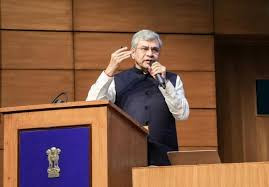India Slashes Alcohol Import Duties: What It Means for Domestic Liquor Industry and Global Brands
IIE DIGITAL DESK : The Indian government has announced a significant reduction in import duties on alcoholic beverages, a move that is set to reshape the country’s alcohol market and spark wide-ranging reactions across the domestic spirits industry. The decision, which comes as part of India’s ongoing trade negotiations with major global partners, aims to increase foreign investment, improve consumer choice, and align with World Trade Organization (WTO) norms. However, the move has also triggered concerns among Indian distillers and breweries, who fear intensified competition from global liquor giants.
India had some of the highest import duties on alcoholic beverages in the world, with rates ranging from 150% to 200%. These tariffs acted as a protective barrier for domestic producers and made imported alcohol—particularly premium spirits and wines—a luxury for only the wealthiest consumers. With the new policy, duties on imported spirits have been slashed to around 100% or less, depending on the product category and country of origin. Wines and certain low-alcohol beverages may see even deeper cuts due to bilateral trade agreements.
The Centre argues that this liberalization will help bring down retail prices of foreign liquors, increase competition, and broaden the range of products available in the Indian market. “It’s a step towards making India a more open and globally competitive marketplace,” said a senior official from the Ministry of Commerce. “This move aligns with our broader trade liberalization agenda and signals that India is ready to engage in equitable, fair trade.”
The response from India’s domestic alcohol industry has been cautious and, in some quarters, outright critical. Homegrown brands, many of which have grown under a protective regime, fear that the reduced duties will allow multinational corporations—already well-resourced and brand-driven—to capture greater market share. Local distillers argue that the playing field remains uneven, as foreign brands benefit from advanced technologies, marketing muscle, and favorable global economies of scale.
“Imported alcohol entering the Indian market at lower prices will put massive pressure on domestic manufacturers,” said Arvind Sharma, managing director of a popular Indian whisky company. “While competition is healthy, this policy could flood the market with global brands, making it harder for us to compete even in our home turf.”
The Indian alcobev (alcoholic beverages) market is among the fastest-growing in the world, expected to surpass $50 billion by 2030. With an expanding middle class and shifting consumer preferences, demand for premium and imported spirits has been rising steadily. Global brands like Diageo, Pernod Ricard, and Moët Hennessy already have a strong presence in India, and the latest duty cut is expected to further strengthen their foothold.
On the consumer side, the decision is being welcomed, especially by connoisseurs and the hospitality industry. Restaurants, bars, and hotels anticipate higher sales volumes of imported wines and spirits as the cost gap between domestic and foreign offerings narrows. “This will finally allow consumers to enjoy global-quality beverages without paying inflated prices,” said Kavita Anand, a Bengaluru-based sommelier.
Still, state-level taxes and distribution regulations remain a major factor. Since alcohol is a state subject in India, local governments impose their own duties and control mechanisms, which could dilute the impact of the central government’s duty reductions. Industry experts caution that without reforms at the state level, benefits to end consumers may vary widely across regions.
Economists argue that the move could encourage more transparency in the sector and attract foreign direct investment (FDI). At the same time, it places pressure on Indian manufacturers to innovate, improve quality, and build stronger brands capable of competing on a global stage.
As the market adjusts, stakeholders across the board—from producers to policymakers and retailers—will be watching closely to see how the revised duty structure transforms India's complex and highly regulated liquor industry.
You might also like!


























